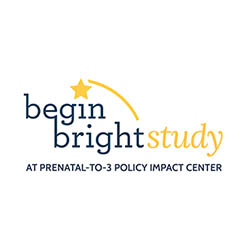Wednesday, July 28, 2021 | 6:00 pm – 7:00 pm Central Time
This event has passed. Click here to go to the event page for recording and materials.
To care for children, we must also care for the caregivers, including early care and education workers.
To better understand the health and wellbeing of child care workers, the Child and Family Research Partnership (home of the Prenatal-to-3 Policy Impact Center) at The University of Texas at Austin collaborated with the University of Washington on a new Culture of Health Study supported by the Robert Wood Johnson Foundation.
This community-based study looked at the impact of wages on the mental and physical health of workers in child care centers in Seattle (WA), South King County (WA), and Austin (TX). Participants cared for children between the ages of birth to 6 years old.
During this webinar, attendees learned about the study and the intersection of wages and health for child care workers. Dr. Cynthia Osborne, Associate Dean of the LBJ School of Public Affairs and director of CFRP and the Prenatal-to-3 Policy Impact Center, presented the findings.
The recording and materials are available here. Please contact us if you have questions about the webinar.



